The Roman Empire is the post-Republican period of Ancient Rome. The emperor was the de facto leader of the Roman Empire and commanded a region that stretched all across Europe and well into Northern Africa and western Asia.
It’s fair to conclude that emperors in Ancient Rome had a lot on their minds. This wasn’t limited to merely ruling their empire, but also dealing with power struggles, avoiding coups and assassination attempts, all while keeping the people of Rome happy.
The line of emperors of Ancient Rome started in 27 B.C. and lasted until the fall of Constantinople in 1453. A total of 199 emperors ruled in this period, and in this post, we have created a list of the 17 most famous Roman Emperors (for a variety of reasons).
1. Augustus
Augustus was born Gaius Octavius and was the first emperor of the Roman Empire. He reigned the empire for 40 years from 27 B.C. until he died in 14 A.D. He is considered to be one of the greatest Roman Emperors of all. Augustus was the great-nephew and adopted son of Julius Caesar, something which allowed him to seize power.
Even though he managed to gain full control over the empire, he rejected monarchical titles and instead referred to himself as the “Princeps Civitatis,” or “First Citizen.”
His reign was the start of an era of relative peace in Ancient Rome known as the “Pax Romana.” This period lasted for about two centuries and except for wars on Rome’s frontiers and a year of civil war known as the “Year of the Four Emperors,” the people of Rome experienced peace this entire period. He was buried at his own Mausoleum in central Rome.
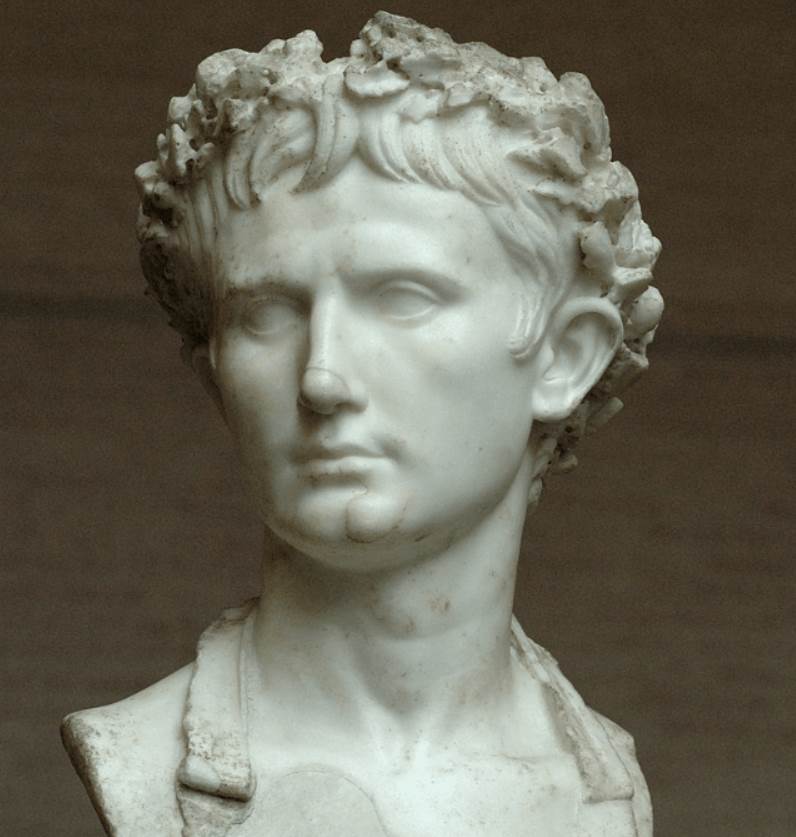
2. Tiberius
Tiberius was the stepson of Augustus and because he was the adopted son of the first emperor of the Roman Empire, he officially became his successor. He later went on the marry the daughter of Augustus, Julia the Elder.
Tiberius was given the name “Tiberius Claudius Nero” at birth but this was changed because of the adoption of “Tiberius Julius Caesar.” The emperors that succeeded him for the next 30 years would be referred to as the “Julio-Claudian dynasty.”
Tiberius reigned over the empire for a total of 22 and a half years from 14 A.D. to 37 A.D. and was known to be one of the greatest generals of Ancient Rome. Apart from that, he was considered to be a reclusive and somber ruler who didn’t seem to be born for this huge task.
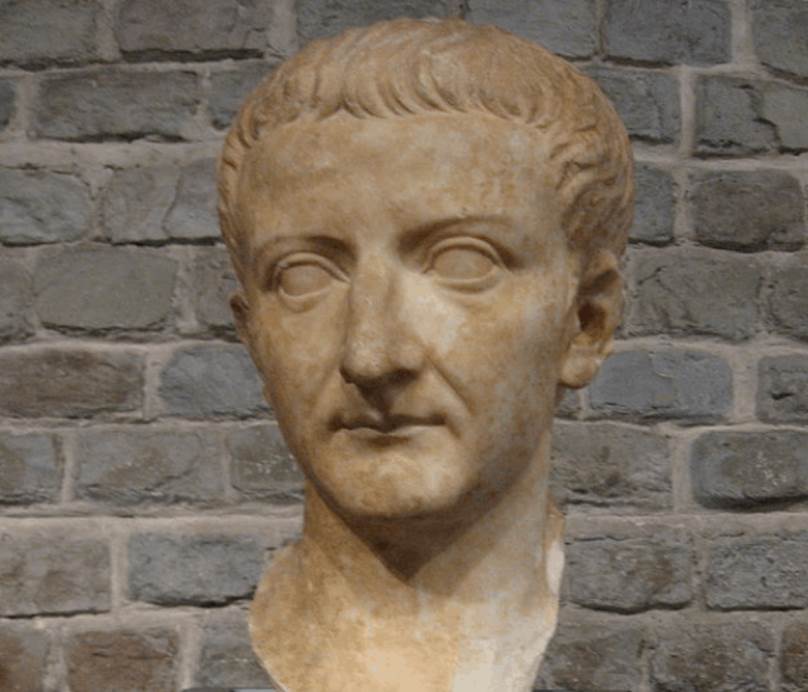
3. Caligula
Caligula was the successor of Tiberius as he was his great-nephew and adopted grandson. He was born into the first ruling family of the Roman Empire as he was the son of popular Roman general Germanicus and Augustus’s granddaughter Agrippina the Elder.
His real name was “Gaius Julius Caesar” and ruled the empire from 37 A.D. to 41 A.D. He was given the nickname “Caligula,” which means “little soldier’s boot” by his father’s army’s soldiers in Germanica.
This cute little nickname was in sheer contrast with the man he would become, as he was known for his sadistic, cruel, and extravagant rule. He was considered to be a madman and his peculiar behavior eventually lead to his assassination in a conspiracy by officers of the Praetorian Guard, senators, and courtiers, who attempted to restore the Roman Republic, something which eventually failed.
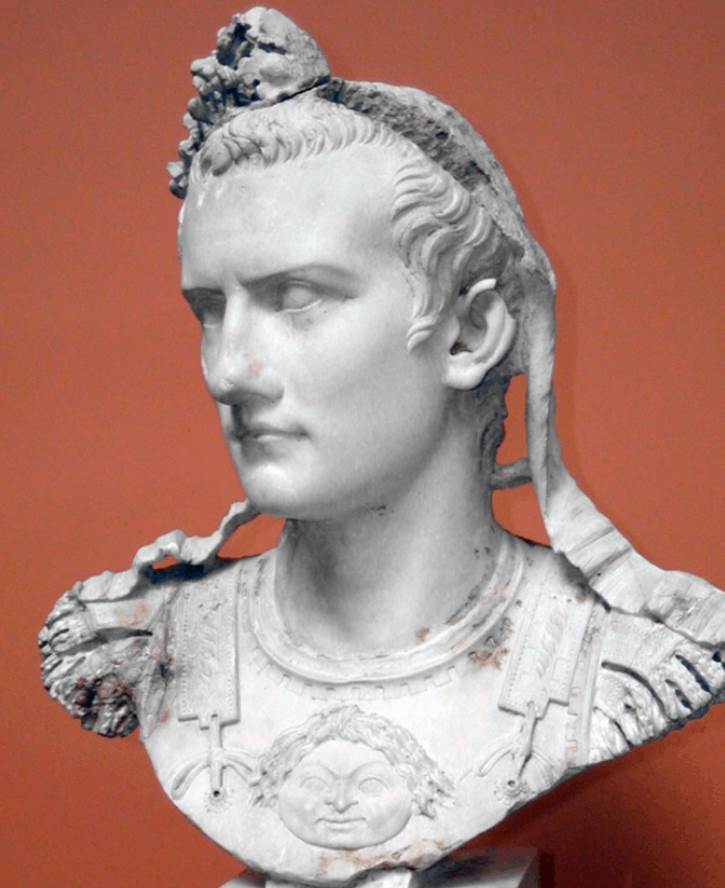
4. Claudius
Claudius was the uncle of Caligula and the brother of his father, General Germanicus. His full name was “Tiberius Claudius Caesar Augustus Germanicus” and he reigned over the Roman Empire from 41 A.D. to 54 A.D.
He was born with a limp and suffered from partial deafness, hence he wasn’t considered to be a serious enemy so he was spared during Caligula’s assassination. He suddenly turned out to be the last man of the family and therefore became emperor, a position that suited him better than expected.
He was known to be a great bureaucrat and restored the financial problems that arose during the reign of his predecessor. He was a great builder and seriously improved infrastructure all across the empire and was the emperor who started the successful conquest of Britain in 43 A.D.
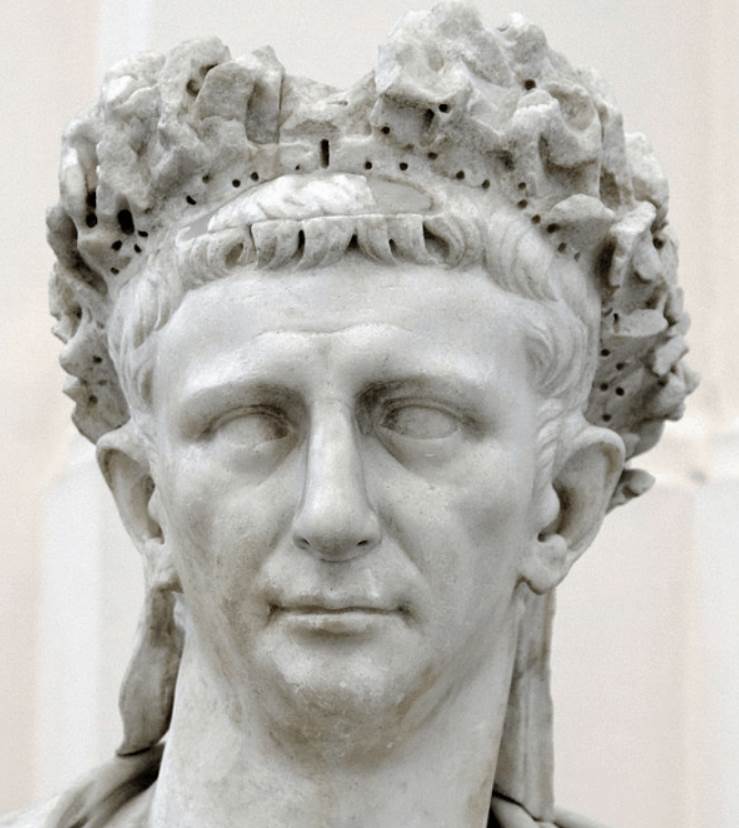
5. Nero
Emperor Nero was born “Lucius Domitius Ahenobarbus” and acquired the name “Nero Claudius Caesar Augustus Germanicus” after he became emperor in 54 A.D. He would rule the Roman Empire for 13 years and 8 months until his suicide in 68 A.D.
It’s very likely that his mother, Agrippina the Younger, helped him to become emperor by poisoning his stepfather Claudius. The plan worked, but because she became too involved with Nero’s decisions during the first years of his reign, he had her killed 5 years later.
After his mother was dead, Nero went completely ballistic, and his reign was characterized by extravagance and cruelty. he blamed Christians for the Great Fire of Rome and executed them by the thousands. His weird behavior and construction of his opulent Domus Aurea eventually led to his forced suicide, marking the end of the Julio-Claudian Dynasty.
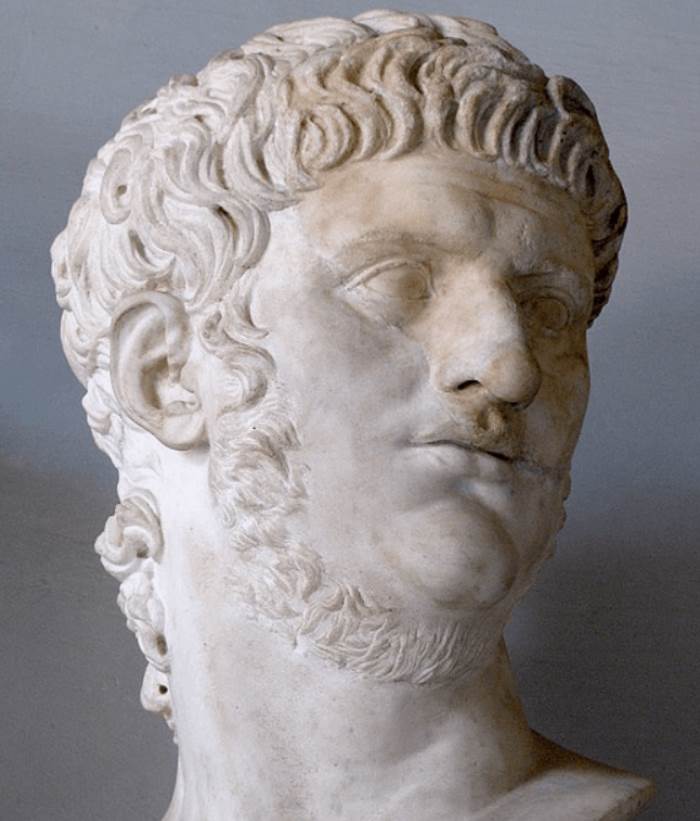
6. Vespasian
Emperor Vespasian was the final emperor during the “Year of the Four Emperors,” a period of civil war that ensued after Nero’s death with 4 emperors seizing power in a brief period of time.
Vespasian ruled over the Roman Empire for nearly 10 years from 69 A.D. to 79 A.D. and started the Flavian Dynasty which would rule for 27 years. he rose to power for his achievements during the Jewish rebellion which started in 66 A.D.
Vespasian didn’t come from a powerful family but was a master of propaganda. He used the spoils of Jerusalem to build the Roman Colosseum and offered free games all year round for the people of Rome in the biggest amphitheater that was ever built.
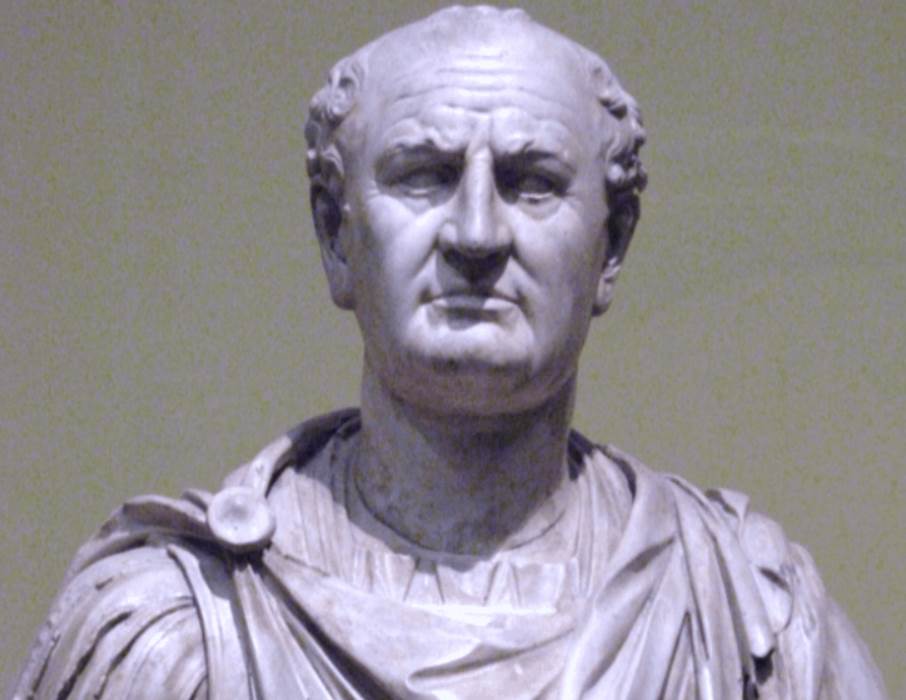
7. Titus
Titus was the oldest son of Vespasian and succeeded his father in 79 A.D. He, therefore, became the first natural son to become emperor, effectively continuing the Flavian Dynasty.
Titus was a prominent military leader and assisted his father during the Judea crisis and the sacking of Jerusalem in 70 A.D. He successfully ended the Jewish Rebellion and played a major role in the completion of the Colosseum.
Titus was known to be a great ruler, even though he only reigned for 2 years and 2 months as he died in the year 81 A.D. of fever. he was deified by the Roman Senate and rewarded with the Arch of Titus, which is located in the Roman Forum, for his achievements in Jerusalem.
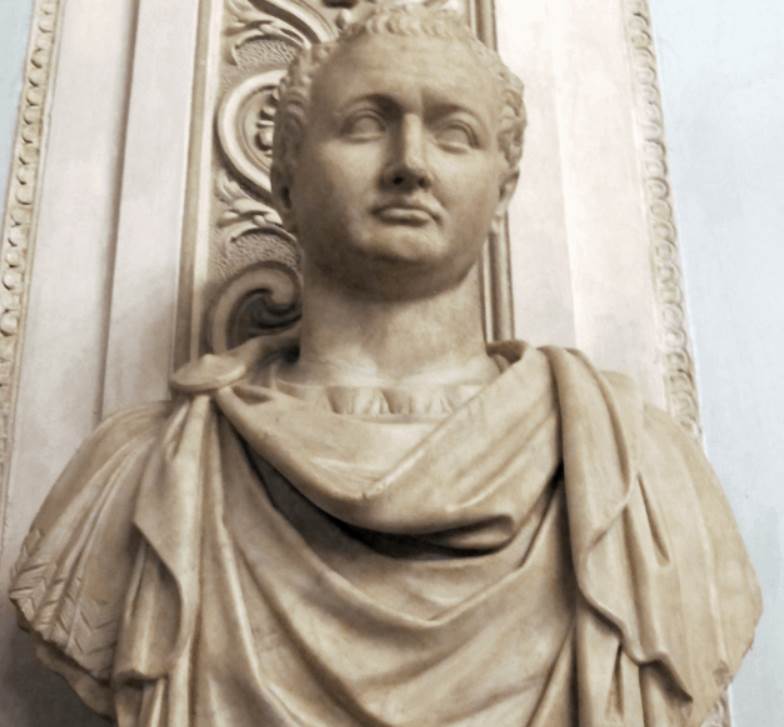
8. Domitian
Domitian was the younger son of Vespasian and the brother of Titus. He was the final emperor of the Flavian Dynasty and ruled over Ancient Rome from 81 A.D. until his assassination in 96 A.D.
Domitian was, similar to his father, a master of propaganda, and was therefore loved by the people of Rome. He strengthened the economy by revaluing the Roman coinage and continued with the large construction projects to rebuild the city of Rome.
While Domitian was popular with the people of Rome, he was considered to be a dangerous enemy to the Senate because of his autocratic rule. This eventually resulted in his assassination from a conspiracy of court officials.
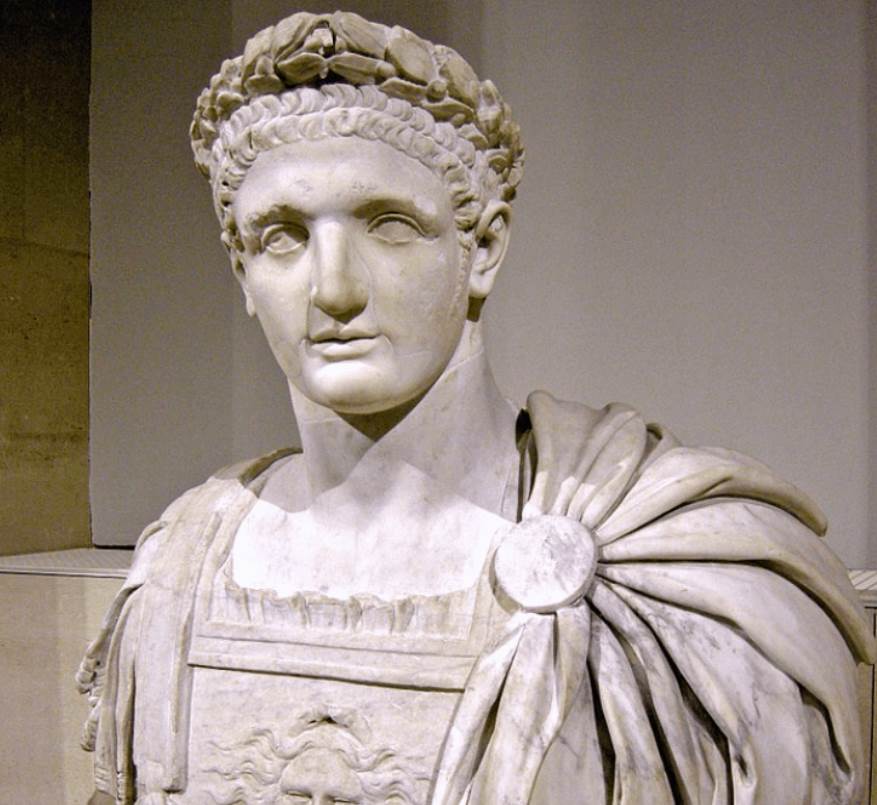
9. Nerva
Nerva, born Marcus Cocceius Nerva, was appointed as Roman Emperor the day that Domitian was assassinated. He became emperor after a long career in politics, starting in the entourage of Nero, followed by his obedient support during the Flavian Dynasty.
He was already 65 when he became emperor and he only reigned over the empire for 1 year and 4 months, during which he wasn’t able to overcome financial difficulties. he died of natural causes in the year 98 A.D.
During his brief reign, he appointed a young general named Trajan as his heir. Nerva and his successors would eventually form the Nerva-Antonine Dynasty which would rule over the empire for nearly a century, from 96 A.D. to 192 A.D. Apart from that, he was also considered the first of the “Five Good Emperors.”
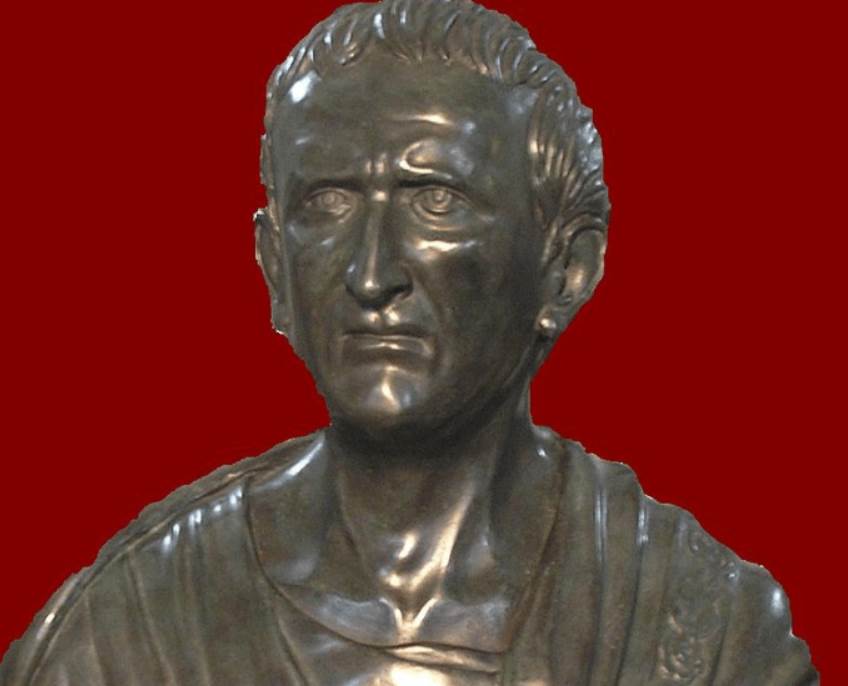
10. Trajan
Trajan, known as “Caesar Nerva Trajanus Augustus,” was a very popular and successful general and was appointed as the heir of Nerva to become emperor of Rome in 98 A.D.
He ruled over the empire for 19 and a half years and during his reign, the Roman Empire saw the greatest expansion in all of its history. Upon his death in the year 117 A.D., the territory of the empire attained its maximum extent. He also started massive building programs including Trajan’s Market, Trajan’s Forum, the Baths of Trajan, and Trajan’s Column in central Rome.
Even though he expanded the empire, he also managed to bring peace and prosperity to the people living in Ancient Rome. he had a philanthropic-style of rule and even went to the extent of starting social welfare programs for his people. Yes, it was relatively good to live during the reign of the second of the “Five Good Emperors.”
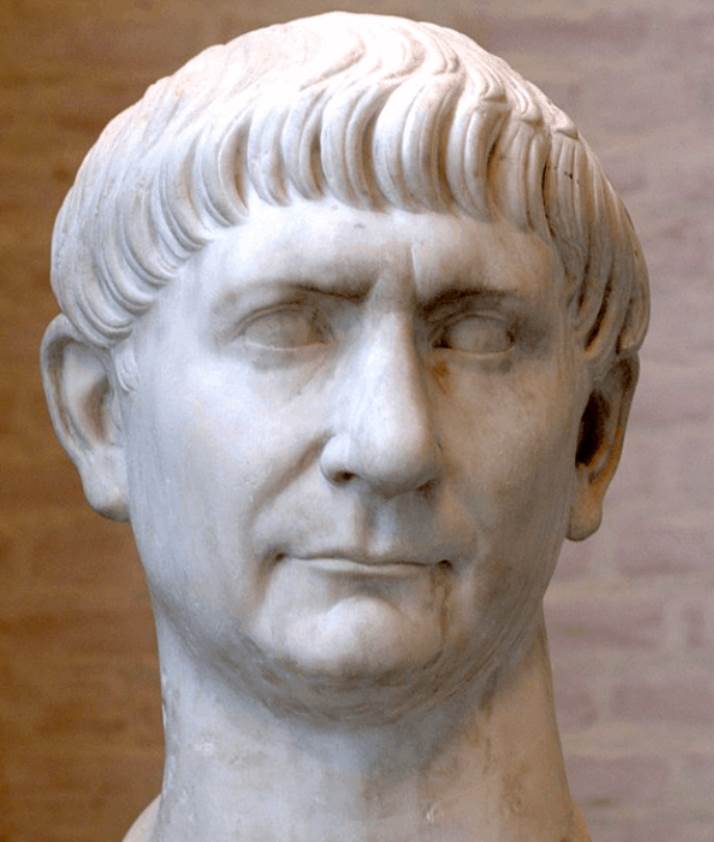
11. Hadrian
Hadrian was born as “Publius Aelius Hadrianus” and was Trajan’s adopted son. He was appointed as his heir on his deathbed. He became emperor in the year 117 A.D. and would rule over the empire for more than 20 years until 138 A.D.
He was a fervent builder and rebuilt the Pantheon in Rome. he was also an admirer of Greece and started a lot of construction projects there, even attempting to make Athens the cultural capital of the empire. He also built his own mausoleum, now referred to as the “Castel Sant’Angelo.”
He’s also known for building Hadrian’s Wall, the northern border of Britannica. This wasn’t a popular move because he, therefore, abandoned the expansion policy of his predecessor which resulted in the Senate objecting to his deification after his death, even though it still happened.
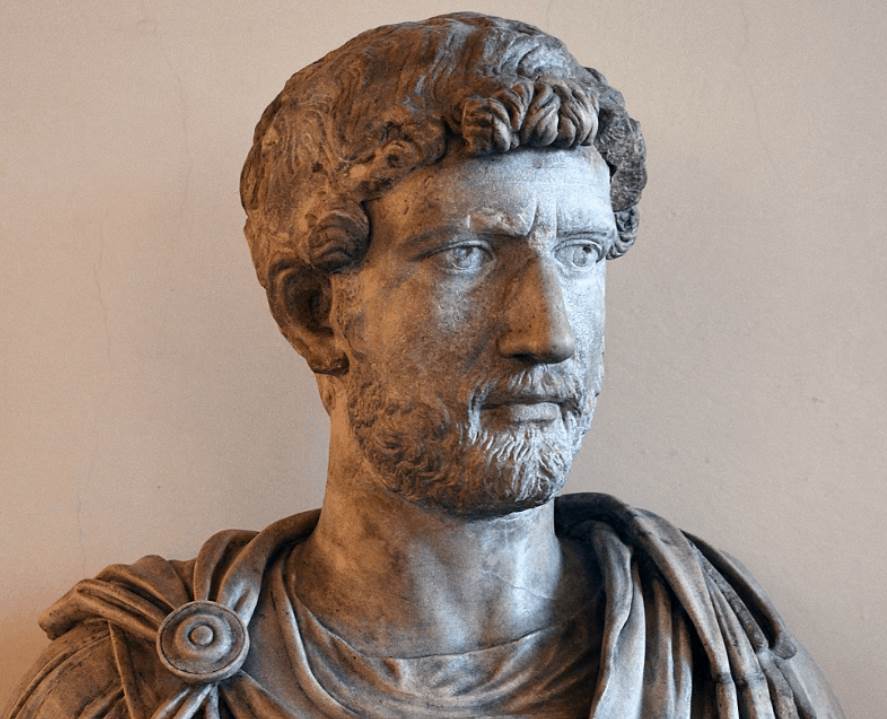
12. Marcus Aurelius
Marcus Aurelius, born Marcus Aurelius Antoninus, was Roman Emperor from the year 161 A.D. until 180 A.D. and was the final emperor to be labeled as one of the “Five Good Emperors.”
On top of that, he was also the final Roman Emperor during the “Pax Romana” period, which started all the way back to the beginning, with Augustus. Remarkably, his reign was filled with military conflict with several wars being fought on the borders and the rise of trouble with various Germanic Tribes.
One of the deadliest plagues in history also broke out during his reign, referred to as the “Antonine Plague.” This cost the lives of at least 5 million people in the Roman Empire. He also didn’t clearly appoint an heir, which resulted in a lot of trouble following his death in 180 A.D.
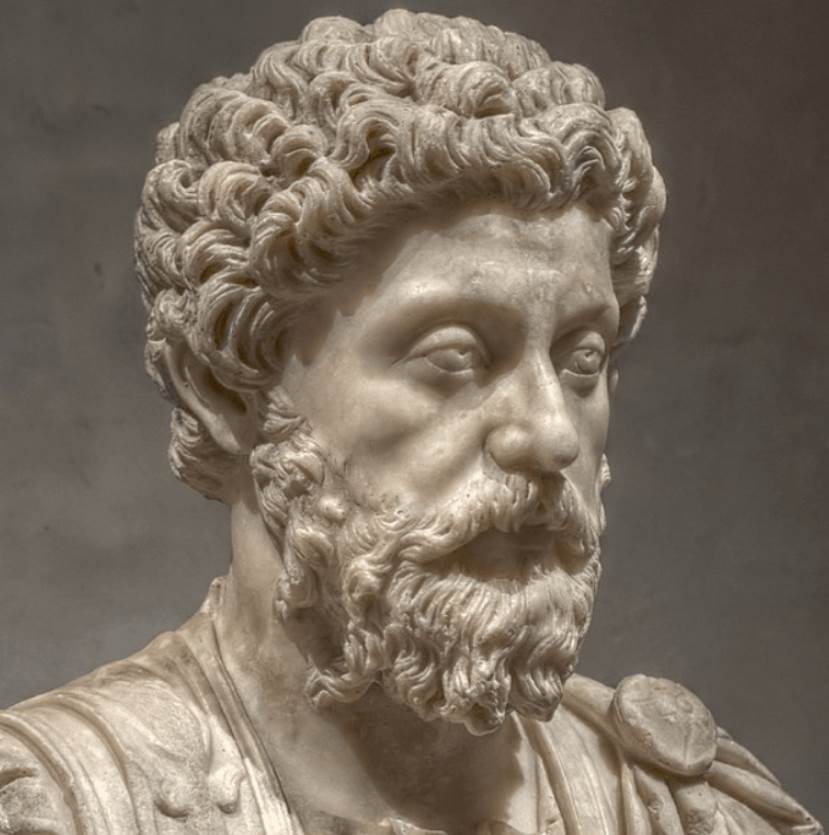
13. Commodus
Commodus, born “Lucius Aelius Aurelius Commodus” succeeded his father Marcus Aurelius as emperor of Rome, with whom he already was a joint emperor since 177 A.D. and became the youngest consul ever in the Roman Empire.
He ruled alone over the empire for a period of 12 years and effectively caused the end of the peaceful area referred to as the “Pax Romana.” His reign was extravagant, weird, and filled with conspiracies and controversy.
Commodus, famously known for his portrayal in the Hollywood blockbuster “Gladiator,” was eventually assassinated in his bathtub, an event that ended the Nerva–Antonine dynasty.
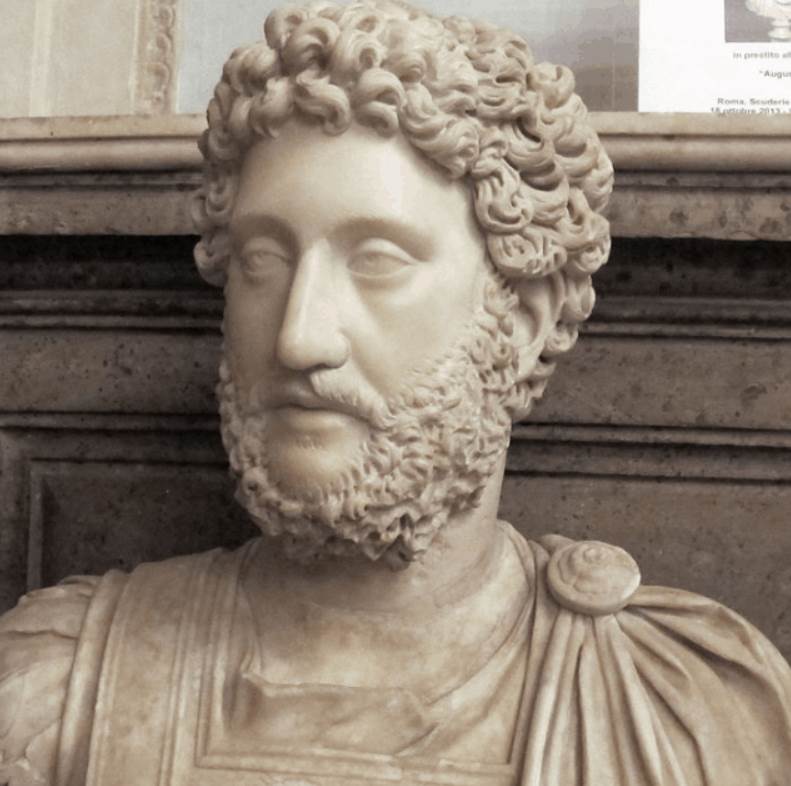
14. Septimius Severus
Septimius Severus seized power in 193 A.D. to become the emperor after the death of Commodus and the “Year of the Five Emperors.” He would rule for more than 17 years and started the Severan Dynasty.
He was the first Roman Emperor who was born in the Roman province of Africa and his reign was marked by military campaigns in this region. The southern frontier of Africa was greatly expanded under his command. A triumphal arch called the Arch of Septimius Severus was built in the Roman Forum to commemorate his victories over the Parthians in 203 A.D.
He also traveled to Britain and invaded modern-day Scotland with an army of 50,000 soldiers in 209 A.D. His attempt to expand the northern frontier as well was cut short when he fell ill and died at Eboracum, modern-day York, in 210 A.D.
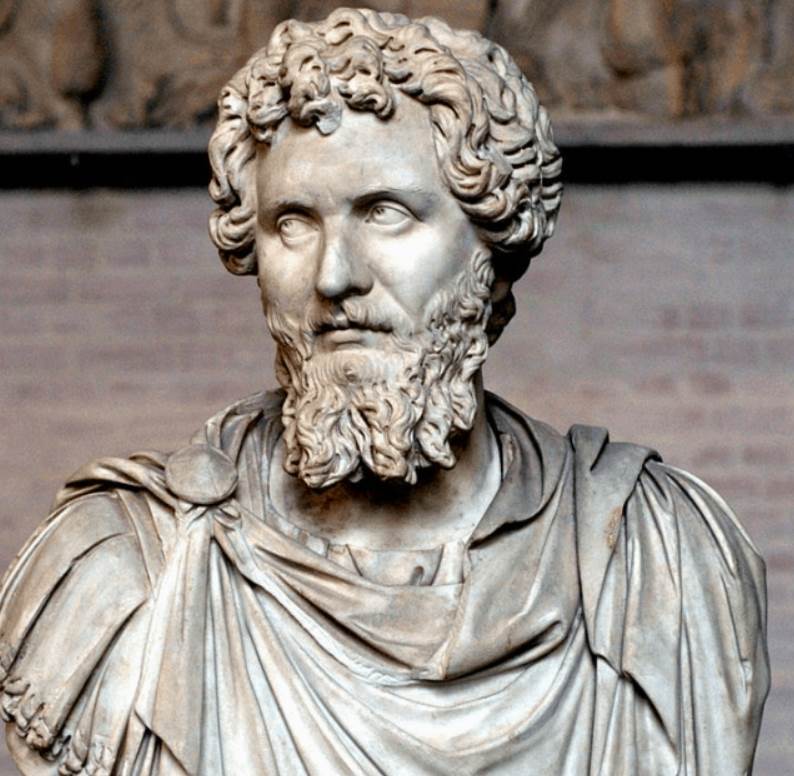
15. Caracalla
Caracalla, born “Lucius Septimius Bassianus” was co-emperor of the Roman Empire together with his father Septimius Severus since 198 A.D. together with his brother Geta. During his reign, one of the biggest construction programs of the Roman Empire was completed, the Baths of Caracalla.
The year their father died, 211 A.D., Geta was murdered by the Praetorian Guard, an act presumed to have been ordered by Caracalla himself, who then gained sole power over the empire until he was assassinated himself in 217 A.D.
Even though he was known for establishing the Edict of Caracalla, which granted Roman citizenship to all free men throughout the Roman Empire, he was also known as a cruel leader who had many people killed. Therefore, historians have referred to him as a soldier first and an emperor second.
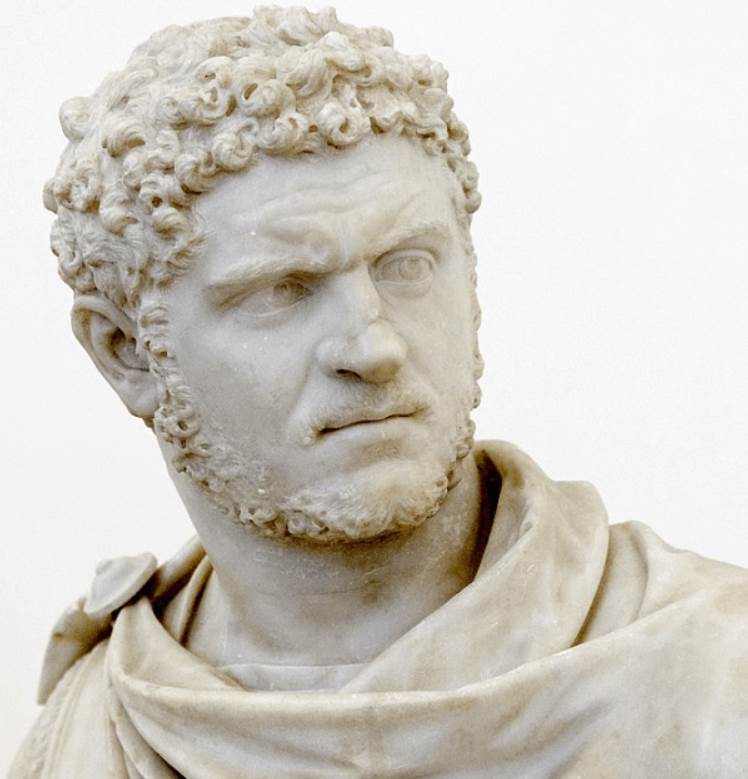
16. Diocletian
Diocletian was born as “Diocles” and reigned over the empire for more than 20 years, from 284 A.D. until 305 A.D. He came from a low-status family and gradually moved up the military ranks. The largest baths of the Empire were completed during his reign, the Baths of Diocletian.
He is famous for effectively ending the “Crisis of the Third Century” which nearly saw the collapse of the Roman Empire because of a large variety of problems and conflicts. he appointed a senior co-emperor, Maximiam, in 286 A.D., who was given control over the western part of the empire, while he ruled over the eastern part.
One of the most prominent moves during his reign, apart from the many reforms he did, was his abdication in the year 305 A.D. This means that he willfully resigned and lived out the rest of his life in peaceful retirement, an unprecedented move in the Roman Empire.
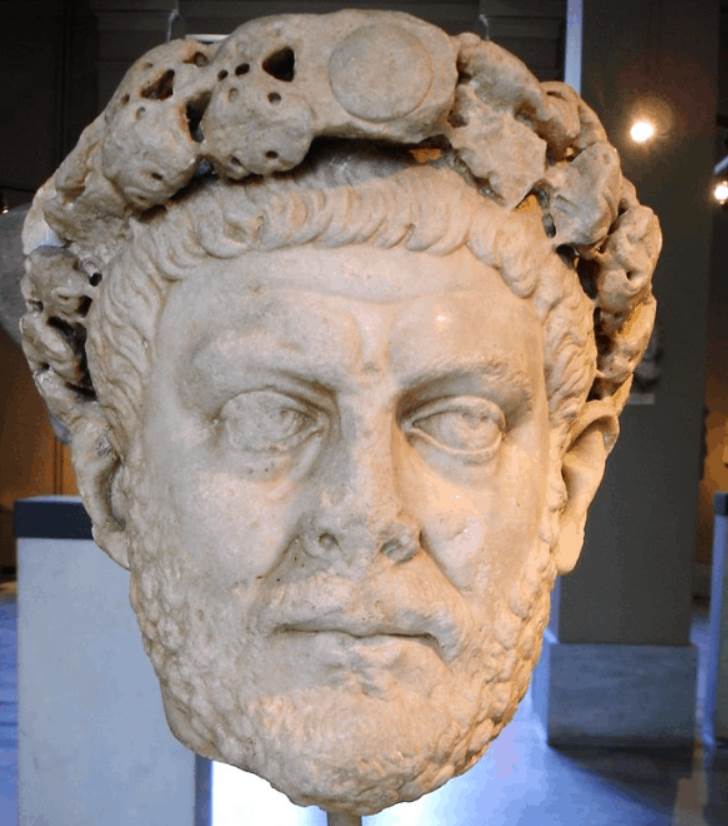
17. Constantine the Great
Constantine the Great, also known as Constantine I, ruled over the Roman Empire for more than 30 years from 306 A.D. to 337 A.D. He eventually became the sole ruler over the western and eastern empires after victories in civil wars in 324 A.D.
One of the most important facts about Constantine the Great was that he was the first Roman Emperor to convert to Christianity, a religion that had been persecuted for centuries in the Roman Empire. He did so, however, on his deathbed.
He also restored financial troubles by introducing a new gold coin called the Solidus. This coin would become the standard for Byzantine and European currencies for more than a thousand years. The Arch of Constantine, the biggest Roman Triumphal arch ever built and which stands next to the Colosseum, was built in his honor. The Basilica of Maxentius and Constantine was completed during his reign as well.
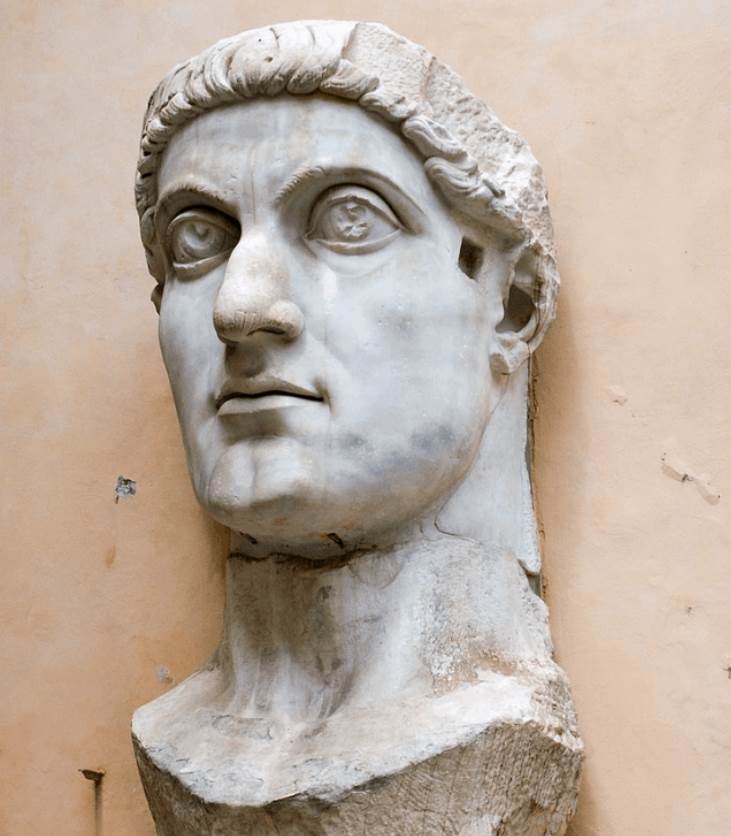
This list includes 17 of the 199 emperors who once ruled over one of the most important empires in human history.
